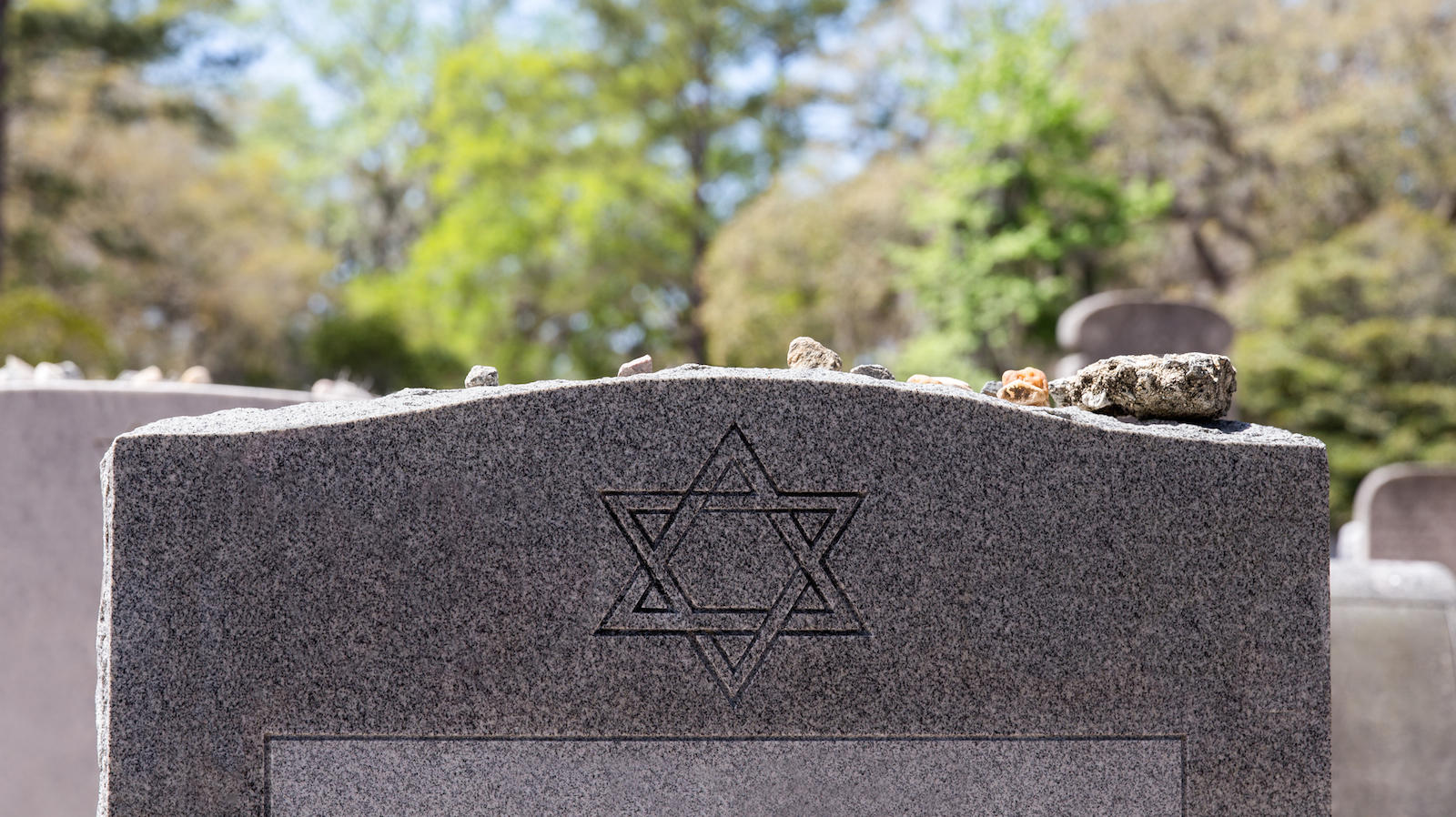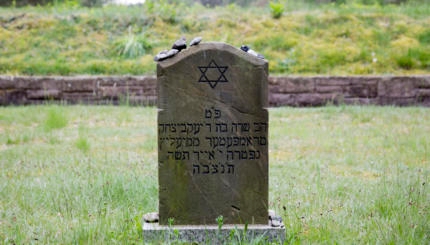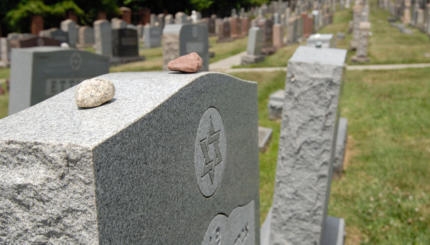Below are some words and phrases you might hear at a funeral or as you navigate the Jewish mourning process. Did we miss something important? Comment below or email us at community@myjewishlearning.org.
Aninut (pronounced ah-nee-NUTE) — The period between learning of a loved one’s death and their burial. A mourner during this period is referred to as an onen (oh-NEHN).
Aron (pronounced ah-ROHN) — This Hebrew word, which is used to refer to the cabinet where a Torah is stored, also means “casket,” or coffin.
Aveilut (pronounced ah-vay-LUTE) — The Hebrew word for mourning.

Help us keep Jewish knowledge accessible to millions of people around the world.
Your donation to My Jewish Learning fuels endless journeys of Jewish discovery. With your help, My Jewish Learning can continue to provide nonstop opportunities for learning, connection and growth.
Baruch Dayan Emet (pronounced bah-ROOKH dai-YAN eh-MET) — Literally meaning “blessed is the judge of truth,” this phrase is uttered upon hearing the news that someone has died. On the internet, it is often abbreviated BDE.
(pronounced KHEH-sed shell EM-ut) — Literally “the truest act of kindness,” this means kindness to a dead person, usually used to describe the work of a Jewish burial society or the care of a grave.
(pronounced KHEH-vruh kah-DEE-shuh) — Hebrew for “holy society,” this refers to a Jewish burial society, often tasked with preparing the body for burial and providing support services for the mourners.
El Maleh Rahamim (pronounced ell mah-LEH rakh-hah-MEEM, or RAKH-ah-meem) —Hebrew for “God full of mercy,” this is the name of a prayer recited at a Jewish funeral, at the unveiling of the tombstone and during services.
(pronounced KAH-dish) — The Mourner’s Kaddish is an Aramaic prayer traditionally recited by the mourners during (see below), (see below), and — when mourning a parent — daily for 11 months after burial.
(pronounced KREE-uh or kree-YAH) — Mourning custom of tearing one’s garment.
Matzevah (pronounced mahtz-uh-VAH) — Hebrew for monument, or gravestone.
Nihum Avelim (pronounced nee-KHOOM ah-vay-LEEM) — Hebrew for “comforting mourners,” considered one of the most important acts of chesed, or lovingkindness, a Jew can perform.
Shiva (pronounced SHIH-vuh or shee-VAH) — The seven-day mourning period after the funeral. What you need to know about sitting shiva and visiting a shiva house.
Shiva minyan (pronounced SHIH-vuh MINN-yun or shee-VAH meen-YAHN) — The prayer quorum of 10 adult Jews needed to assemble in the mourner’s home so that he or she can recite the Mourner’s Kaddish.
Shloshim (pronounced shloh-SHEEM, or SHLOH-sheem) — The first 30 days after a loved one is buried.
Shomer (pronounced SHOH-mur or shoh-MARE) — Hebrew for “guard,” this is someone who sits with the body before it is buried. Jewish law dictates that a body must not be left alone between death and burial.
(pronounced tah-HAH-ruh or tah-hah-RAH) — Hebrew for “purification,” this is the traditional cleaning and ritual preparation of a body before burial, usually performed by members of a chevra kadisha (see above).
Yahrzeit (pronounced YAHR-tzite) —The Hebrew anniversary of someone’s death. On a loved one’s , Jews traditionally light a 25-hour candle known as a yahrzeit candle or yizkor candle.
Yizkor (pronounced YIZZ-kohr) — A Jewish memorial service for the dead that is part of the observance of several holidays.
Sign up for a Journey Through Grief & Mourning: Whether you have lost a loved one recently or just want to learn the basics of Jewish mourning rituals, this 8-part email series will guide you through everything you need to know and help you feel supported and comforted at a difficult time.
Looking for a way to say Mourner’s Kaddish in a minyan? My Jewish Learning’s daily online minyan gives mourners and others an opportunity to say Kaddish in community and learn from leading rabbis.



